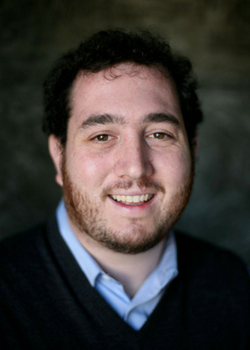A few days ago, we celebrated Simchat Torah, the festival of completing the annual reading of the Torah and the re-starting of a new cycle. Consequently, this week we no longer find ourselves wandering in the desert, but back once again at the beginning of it all.
One of the most famous accounts from the opening parashat of the Torah is the tragedy of the first siblings, Cain and Abel. When God favors Abel’s sacrifice, and scorns that of Cain, the elder responds by killing the younger, committing the first murder in human history. Afterwards, God appears and asks Cain: “Where is your brother?” To this, Cain feigns ignorance saying: "I don't know. Am I my brother's keeper?" God responds by calling his bluff: "What have you done? Your brother's blood cries out at me from the ground!" And Cain is condemned to wander forever as punishment for his crime.
Yet, as bad as Cain’s behavior was, there are voices in the Jewish tradition who suggest that he did not get an entirely fair deal. After all, Cain had no prior experience with death-- no one had yet died at this point in history. Therefore, it seems unjust for God to hold him responsible for a crime he could not possibly have fully understood. It was for that reason, these commentators suggest, that Cain’s punishment was exile, rather than the usual demand of life for life (Genesis Rabbah 22:12).
One Midrash (rabbinic legend) goes even further, provocatively suggesting that while Cain really wasn’t fully to blame, Someone else was:
"Rabbi Shimon bar Yochai said: This is a difficult thing to say, so I will use a parable: ‘Once two athletes were wrestling in front of the king. If the king wanted, the two could be separated, but the king didn't intervene, and one killed the other. The loser cried out with his dying breath: 'Who will get justice for me from the king?' That is why it is written: 'Your brother's blood cries out at mefrom the ground'" (Genesis Rabbah 22:9)
Rabbi Shimon places the blame for Abel's death squarely with God. God is here compared to an indifferent king or a feckless parent, who might have stepped in and separated the dueling brother's before the bloody and predictable end, but failed to do so. By maintaining silence, and only appearing on the scene once the awful deed has already been done, God abdicates the responsibility to protect the new and vulnerable Creation. Abel's blood isn't crying out to God about Cain's guilt, it's crying out against God, accusing the Holy One of gross negligence!
What I love about this Midrash is that Rabbi Shimon bar Yochai, one of the great sages and mystics of the Jewish tradition, sees no contradiction between his own deep faith and his willingness to accuse God of having fallen short. Many of us have internalized the message that being religious means meekly accepting tragedy as "God's will." The Midrash challenges that assumption and teaches us that piety does not mean being a doormat -- crying out at God is sometimes exactly what the religious conscience demands.
Our Tradition grants us permission to be angry at God, to question, to challenge, to demand justice. That is not an expression of lack of belief-- rather; it's the highest embodiment of what it means to be Am Yisrael, the People who Wrestle with God.
Shabbat Shalom

